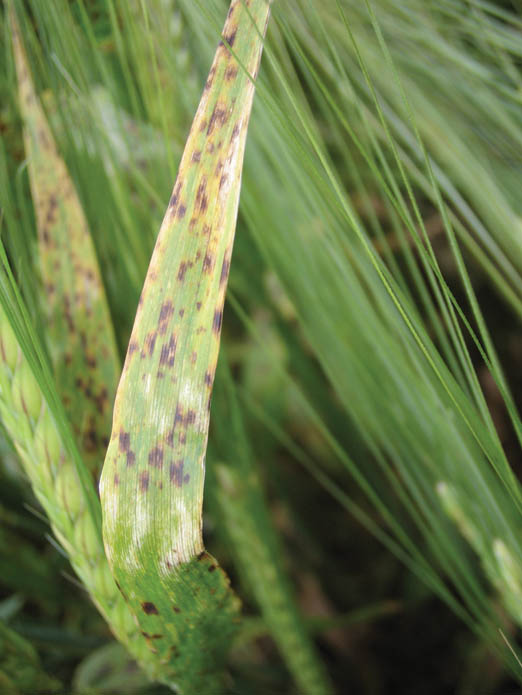Approval leads to barley fungicide armoury addition
2nd April 2022
Although barley varietal resilience has improved over recent seasons, there’s still no Extase-equivalent in recommended winter and spring barley lists, so the frontline for defence remains with disease control and an effective fungicide armoury – which has been strengthened by the launch of Ascra (prothioconazole + bixafen + fluopyram).
Ascra is approved for one application per season for both winter and spring varieties. Independent and Bayer farm trials with its Forward Farmer group have delivered mean yield responses of 0.3t/ha in winter barley varieties and 0.2t/ha benefit in spring varieties, when compared to previous standard Siltra (prothioconazole + bixafen), says Bayer.
The company also claims improved protection against rhynchosporium and net blotch when compared to Revystar, with equal ramularia control.
Ascra also has full MAGB approval for malting varieties and a cut-off date of GS61, ideal for those growers targeting premium markets. “Often the ideal ramularia timing for spring crops is GS49 (first awns visible) and fortunately both Siltra and Ascra can be used here,” notes Bayer’s Scottish CTM Grant Reid.
SRUC’s Prof Fiona Burnett (right) puts Ascra’s performance down to its higher loading of SDHI.
But she also ponders whether physiological benefits are playing a part, particularly with ramularia. In SRUC spring barley trials, Ascra has shown to give a slight uplift in yield, over Siltra, which she feels could be down to this as SDHIs have limited Ramularia activity. “We know that plant stress is a factor in ramularia infection, so any benefit in plant health is helpful. Much of the SDHI family have these additional properties, which we saw with strobs. Also, research has shown that healthier plants photosynthesise more efficiently.”
She also welcomes the news that there has been no shift in the efficacy of prothioconazole, given that it is the cornerstone of most barley programmes. She also feels the addition of Folpet bolsters ramularia control.
For winter barley, Prof. Burnett feels it is particularly useful in net blotch and rhynchosporium situations. “We’ve seen a slight slide in SDHI performance against net blotch resulting in higher rates being needed to maintain control. Ascra’s high SDHI loading is bolstering activity,” she notes.
Dr Tom McCabe of Teagasc agrees that Ascra’s SDHI loading is a benefit in barley disease control programmes.
He considers rhynchosporium the major winter barley threat in Ireland and throughout much of the UK. A polycyclic disease crops can be exposed to multiple infections and research has shown that this trash-borne disease can be spread by infected seed.
There’s probably no better place than Ireland to test fungicides for wet weather diseases, and Ascra has proved a consistent performer in Teagasc winter barley rhynchosporium trials.
Dr McCabe sees Ascra as a flexible option, suiting both key timings but particularly useful as a winter barley T1 application. “Barley is a sink capacity crop so ear numbers are vital for yield. The T1 is all about tiller protection and retention. That SDHI loading is also giving an uplift to net blotch control, and with a good dose of prothioconazole it is effective
against mildew too,” he notes.
Dr McCabe says Siltra is still performing well, but the addition of fluopyram just gives growers more options. Also, he isn’t opposed to prothioconazole being used twice in winter barley programmes, but would be if used at the T0. Here he would prefer to see cyprodinil or spiroxamine applied.
Mr Reid agrees and says Ascra’s use should be directed where disease potency is most needed. “For winter crops, that is most likely for the T1 – but for those with historical ramularia problems, it might be better to hold off until the T2.”
For spring crops, with full MAGB approval and use at GS49, he sees the T2 as an obvious fit. “This timing is the key driver for yield so it is important to protect the flag leaf and awns against ramularia. With enhanced disease activity and physiological properties Ascra is a very good fit,” he concludes.

